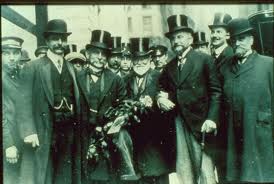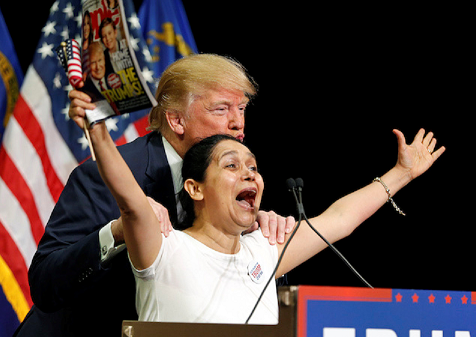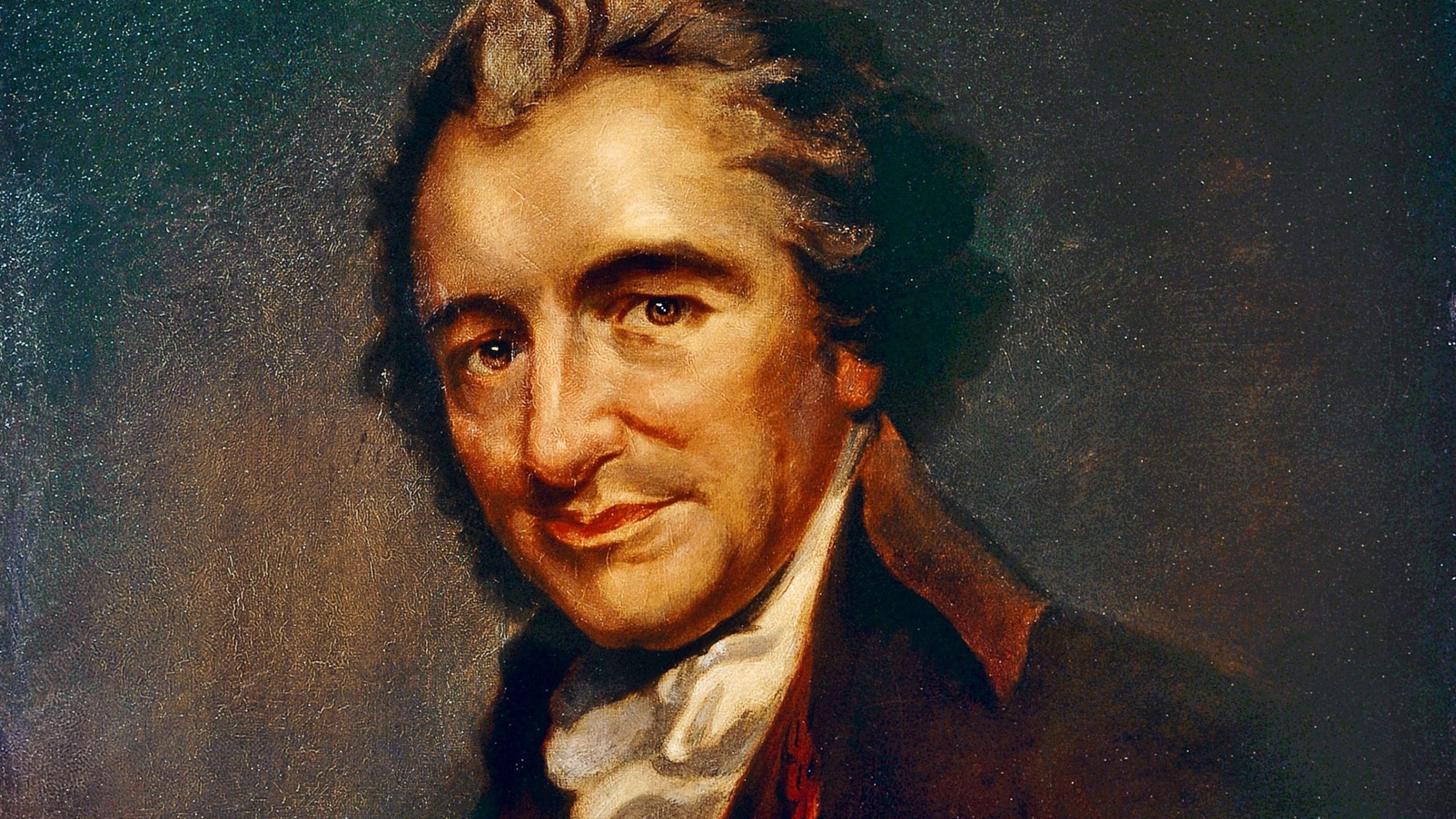(If this seems dull and dreary, it’s because it’s the Introduction to a short monograph I’m preparing about the lack of effective funding on the Right to combat the Left. I had to write it anyway.)
In the inquiry that follows we’ll see why the Left is forceful in investing in bringing down the capitalist system, while right wing capitalists continue to hedge their bets.
* * * * *
G K Chesterton is one of my favorite moralists and intellectuals. I rarely can find disgareement with any of his reasoning. But on the subject of capitalism and capitalists I’ve found Chesterton troubling.
First of all, Chesterton hated capitalists. He had nothing good to say about them, and it all centered around what he perceived to be the total worship of money. He found them boorish, and single purposed. One tract minds.
And even today, in England, no matter how wealthy one might become, he/she will always be “middle class”…unless knighted.
This is a subject I will dwell on more in greater depth now that “capitalism” has been severed, so to speak, from Adam Smith’s notion of “free market” capitalism , which is why I have revived this piece from 2011.
But I think Chesterton often confused some capitalists with capitalism, in the same way some have laid what French knights did in the Holy Land during the First Crusade at the feet of Christianity.
Chesterton seemed to blame capitalism-the-system, for what were, and are, ordinary foibles among men who dedicate themselves to making money with the same singular focus and passion an artist might sculpt, or paint, or write.
Some men take the spoils of their victories and give them to their wives, their children, donate them, build hospitals, even universities, but this is in part just to keep them quiet and out of the way, for there is only one thing in their lives; the Game.
Other men take their money and spend thousands turning a Caddy back into a Chevy then drive up and down the street, sticking their bare arse out the window mooning their neighbors as they finally move into that dee-luxe house on the other side of town.
This is how it is with wealth.
And as we know with all great endeavors, from artists to industrialists, their work is defined by the age in which it is found. It’s not that Picasso’s art would have been ridiculed in the court of Louis XVI, but that he could never have even imagined it, for his time would never have permitted it. It is the same with a millionaire in 1880 and a millionaire today. Chesterton only knew the former, and couldn’t conceive the latter.
Chesterton also knew the great writings of capitalism, Adam Smith, Ricardo, but his era betrayed him, for what he saw, in the period around World War I, was a retiring first generation of industrialists, later coined “robber barons,” who appeared to drive toward monopoly at one time, which was little more than what the socialists and Bolsheviks wanted to, Chesterton thought.
And of course, as a man of refinement and taste, Chesterton also found capitalists to be the most boorish of sorts, at least on the surface, where he knew them, as I doubt GK dined with many, or shared port, cigars and stories of childhood, or other passions such as religion. He seemed to assume they had none of those, even though biographers after this period of Chesterton’s writings, painted a totally different picture…both of the men, and their deeper ethical beliefs.
Allan Nevins began this revisiting of the Robber Barons in 1940 with his 2 volume biography, John D. Rockefeller: The Heroic Age of American Enterprise. But by that time Progressivism had been well planted in America, so Nevins making nice over John D did not sit well, and that debate rages still. I won’t take us down that path, for my objective is to showcase political-economic conditions more current, but it is always important to note the core of a wealthy man, for some truly are philistines and barbarians, while others weigh every business move as they would wooing their first love, with chivalry and honor.
Chesterton’s capitalists were the polar opposites of Ayn Rand’s, whose industrialists (Atlas Shrugged) were all philosopher-kings, more like Plato’s Republic than anything ever seen on this earth. Historians like Nevins tried to paint a picture somewhere in between, but in the 1920’s, Chesterton wrote of the vulgar capitalists as if to infer that Smith could never have imagined the kind of wealth industrialists could produce, so could never imagine the raw power, as had been put on display in America during the age of the Robber Barons.
Well, Adam Smith was thinking very properly, GK, for above all he injected a moral dimension into his notion that men, by pursuing self interest, would bestow upon their fellow man a lifting of all boats. They would share without necessarily intending to share. Even the most greedy and miserly of Scrooges must “share” (disperse) wealth in order to build their own.
Smith also invoked ethics, which is not quite, or always, the same as obeying the law, especially in an era when a thing is still new, still finding its legal legs, as industrial capitalism was near the end of the 19th century. Law evolves as private commerce develops. Not the other way around. In nature business and commerce is (should be) always out in front, one step ahead of the legislature, and even the king. That is how it is supposed to be in nature, if there is to be any wealth, or freedom, at all.
That process continues today, only it is not the ideal of capitalism that has changed the past century, but rather the moral and ethical center of the society which supports it, and the governments who wish to control it.
Last but not least, Smith introduced the law, the certifiably true notion, which modern day anti-capitalists wish to outlaw (versus disprove, which they cannot), and that is that the capitalist system creates new money, and new wealth. Next to the list of liberties found in the Bill of Rights, it is the most empowering law of all in a free society.
I always forgive Chesterton for he wrote of capitalism in a period when it was still feeling its way at the end of it first generation. John D was still alive, Nelson, his grandson in high school, and David, the last survivor of John D’s third generation, was still in knee pants.
And by the time Chesterton died, in 1947, the wealth of America’s great barons had moved into those second and third generations, and from there on since, for good or ill, they all entered that special world of the idle rich, not unlike European royalty, about which much is said, for Barack Obama tells us they pay less taxes than a janitor…as do, by dishonest inference, the hundreds of thousands who actually work for their wealth…
…in a manner Chesterton never lived to see, but which Adam Smith clearly predicted would be a logical outcome of all those boats being risen.
For you see, in my lifetime there was an explosion of wealth creation in the American private sector that undid everything Marx (and Chesterton) believed to be a form of slavery on the worker.
Two events caused this…World War II and Ronald Reagan.
World War II produced America out of the Great Depression, and brought upon the first great dispersal of capital wealth. But that dispersal did not come so much on the industrial might of the war but rather the GI Bill, where millions of returning soldiers, at a time when a marketable education was still considered a Good Thing, got to go to college to enter the workforce as engineers, accountants, bankers. My father was one. So was my father-in-law, one the son of coal miner, the other the son of a farmer.
In the next thirty years they would accumulate enough wealth to become the fathers of capitalism on a far broader scale than Chesterton could have imagined. As managers in a consumer-based industrial society they disproved the core of everything Karl Marx believed, for they proved that a “working” class could arise and prosper by adding value to a product, without being locked into the wage slavery Marx railed about, and Chesterton privately believed.
That generation not only earned well, but they could invest on their own, and also in their children, who have gone onto become capitalists in their own right (yeah a few are still sleeping it off in the parks around Wall Street).
And this latest sea swell of wealth dispersal is thanks to the tax cuts Ronald Reagan installed in 1981, when he lowered tax rates to 50% (from 70%), causing the greatest economic expansion in the American middle class ever. They are now 36%.
(History: Roosevelt raised the highest tax rate to 63% from 25% in 1933, and it hovered between that and 91% until Reagan’s day. You can see why the Dem’s want those high rates back, for they mean the end of middle class capital expansion.
(Sidebar: Obama is making war on the American Dream, and wants to return us to the days when capital growth was limited to a very few, and only those capitalists, mostly Big Corporations now, selected by government, where higher income tax threats are less onerous. And of course high income tax rates are no threat at all to the aforementioned idle rich.)
What has occurred in America (sadly, not Europe, as they are now finding out) since the 1980s has been a total vindication of Adam Smith and capitalism. From the time of Marx into the era of GK Chesterton (approx 80 years) the idea was that, just like royalty, we had a capital class, and a merchant class that purveyed to the wealthy class, and the worker class, who was, by dictate of the capitalist market, a wage just barely enough to survive.
” …to keep the poor man just stout enough to do the work, and just thin enough to have to do it” (1912)
The idea of the wage-earner was that they must come back to work every Monday morning broke.
These working poor could never be capitalist because they could not save any capital, even enough to buy a house (It’s a Wonderful Life, Frank Capra, 1946) , while, unbeknownst to GK, Jews were getting off the boat in New York with $23 in their pockets, somehow managing to save enough from a job with a tailor, to buy, first one, then three, then 100 sewing machines, and then build a factory around them. I knew that Jew. Adam Smith’s proof was always there, it just took some time.
From 1948 or so, through the 1980s we had en explosion of wealth creation in America as well as massive dispersal of wealth in America. (Europe did not fare so well.) Today, many of those “greedy rich millionaires”, earning from $250K-to- $1M and paying only 36%, haven’t even been to college. They haven’t had to. Many, like Gates and Steve Jobs (RIP) started in their garage…much like Proctor and Gamble did. Many others took jobs as wage and hour employees, and over a few years saw they could provide the service better, and struck out, carving a niche of their own. They may have 5-15-30 employees today, belong to Rotary, and solidly vote Republican.
Most had never read the Constitution …until 2009.
American small business is where, logically, Adam Smith believed capitalism should take a free market society. They are the strength of a capitalist society today even as Karl Marx (and Chesterton) said they didn’t, and couldn’t exist.
We still have makers of great wealth (Gates), but as a percentage of GDP see where our richest men fare today, versus the first generation of industrialists. It was corporations that replaced John D Rockefeller (Exxon Corp, worth $500B) and Ford and Edison and Bell, and JP Morgan (Chase Bank, worth $77 billion, etc.) Exxon does not command 1/65th of the American economy as its founder once did.
The Moral Equation
Now, Adam Smith wrote what he did while living under a parliamentary monarchy, that at times, had been near absolute. He wrote of a system of free markets that would free men to do all sorts of things, but not necessarily to create a constitutional republic. That was someone else’s idea. And while a moralist, Smith pursued reason, not religion to explain man’s rational business nature.
So we ought not read too much into his moral declarations as they might apply to modern relationships between the rational market place and government. Neither capitalism nor capitalists are naturally at war with the state.
But the reverse can never be said to be true., for since Karl Marx, it has always been so.
And there’s the rub, for capitalism contains all the known vices. Greed, much like the 2nd Amendment, may be the most poisonous, for, if successful, it enables all the others, from infidelity, to vanity, gluttony, to religious apostasy. Recall the rich man’s chances with heaven, and the camel’s chances with the eye of the needle (Matt 19:24)?
Smith inferred a rational morality, both in Wealth of Nations and his Theory of Moral Sentiments (1759). But among the moral virtues, loyalty and gratitude can be a two-edged sword in the marketplace, for the well-placed businessman may show both to the government that enables and protects him as well as the “moral” market system that created him.
So it is not easy to say with certainty that a successful businessmen has a paramount duty of gratitude to the system (capitalism or constitutional republic) which enables him to become wealthy. Businessmen are far more pragmatic. It is the businessman who pauses to say grace who remembers from whence all good things come.
A minor point, I know, but I’m going somewhere with this.
It’s true, far too few American success stories today know to recognize just where their good fortune came from. And while you may think this is from the lesser educated at the bottom of the heap, they were more often taught to say grace over their meals. So no, our institutions of higher learning can take far more credit for turning our corporate businessmen into moral agnostics. (Compare: at a time before the income tax, John D Rockefeller tithed every week of his life, since he had been 20.)
It’s a law, the businessman who ties his moral rules and gratitude to fixed stars in the heavens, however uneducated he may be in scholarship, will in the end outdistance those who swear fealty to situational moralisms that are as fleeting as the wind.
If the playing field is level.
So you see, the private sector and its wealthy have a natural anathema for any system that will confiscate their wealth (communism). But they feel less antagonistic for the system that will confiscate the wealth only of their competitors, to their benefit (socialism and fascism).
Only a fixed star (and Smith knew this) can guide capitalism through stormy seas.
This is why, in modern politics, I believe it is best for true conservatism to look to small business capitalism and capitalists than to hold its breath waiting for the idle rich, and big corporate donors to get their acts together and cling conservatism to their breasts.
In truth they probably cannot.
While it would be nice to have a George Soros on our side, in fact, George Soros knows his GOP counterparts can never play a catalyzing, activist role as he does, for they look at their ties to the politics of wealth entirely differently than he does.
Soros knows to go to the machinery not only of politics, but of society, to blaze a trail to his ends. So-called big GOP (nee conservative) billionaires don’t even know to look there. (I discuss this later.)
This is where we are.
As sad as it makes me feel, this latest episode with Chris Christie, with enough wealth to blow the Left away three times over (if cleverly spent) instead pawing at the ground so that “anyone other than a Christian conservative might get the GOP presidential nod”, waiting on the sidelines rather than attacking their enemies at the source, tells me a lot about not just the ingratitude, but the downright lack of good sense of the corporate wealth and idle rich in America.
I’m ashamed of them.
But we’ll trudge on, and we’ll win, only more ugly. And then we’ll leave them alone, and then they will know, and resent, what their founders, from John D Rockefeller to Bill Gates, had always wanted but never could get, and that was to be left alone.
I suspect for the celebrities among them, it will not be a nice feeling, to be unheard, un-listened to, unnoticed.
But this too shall pass.





